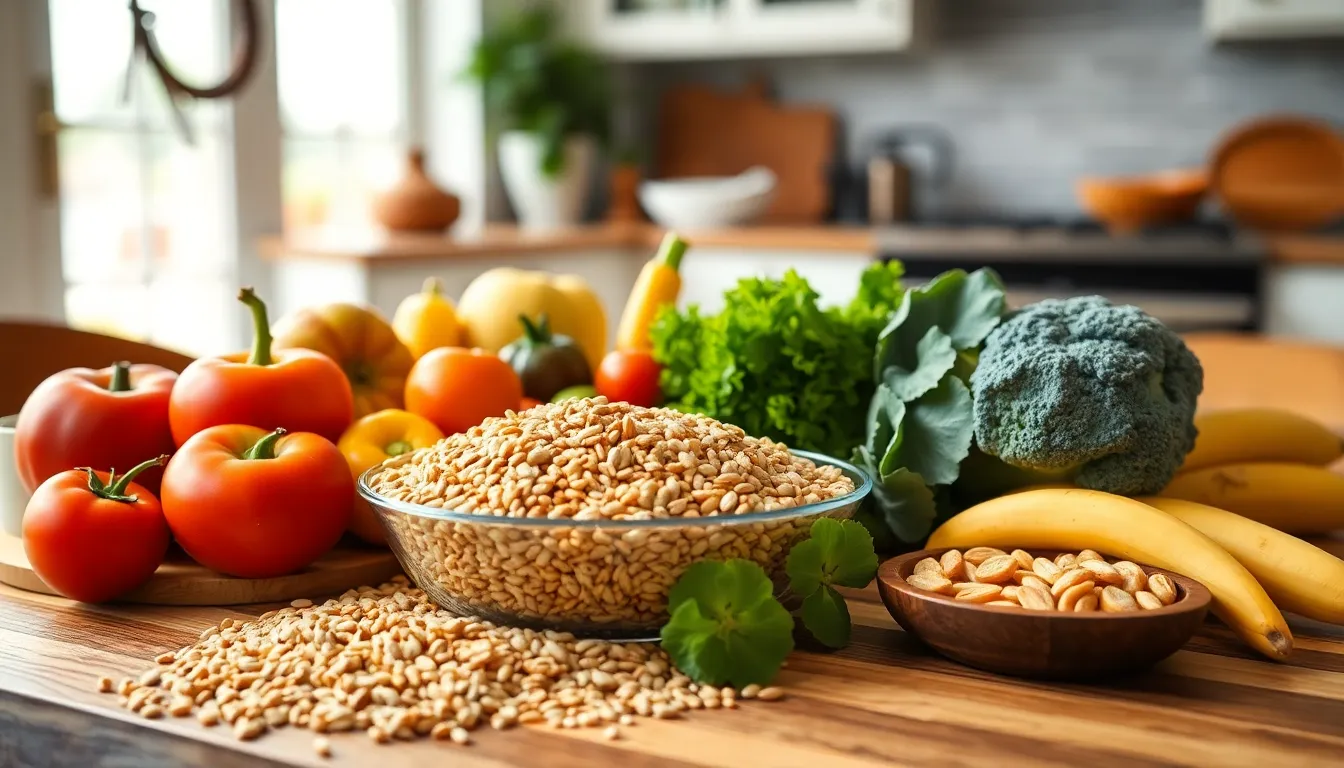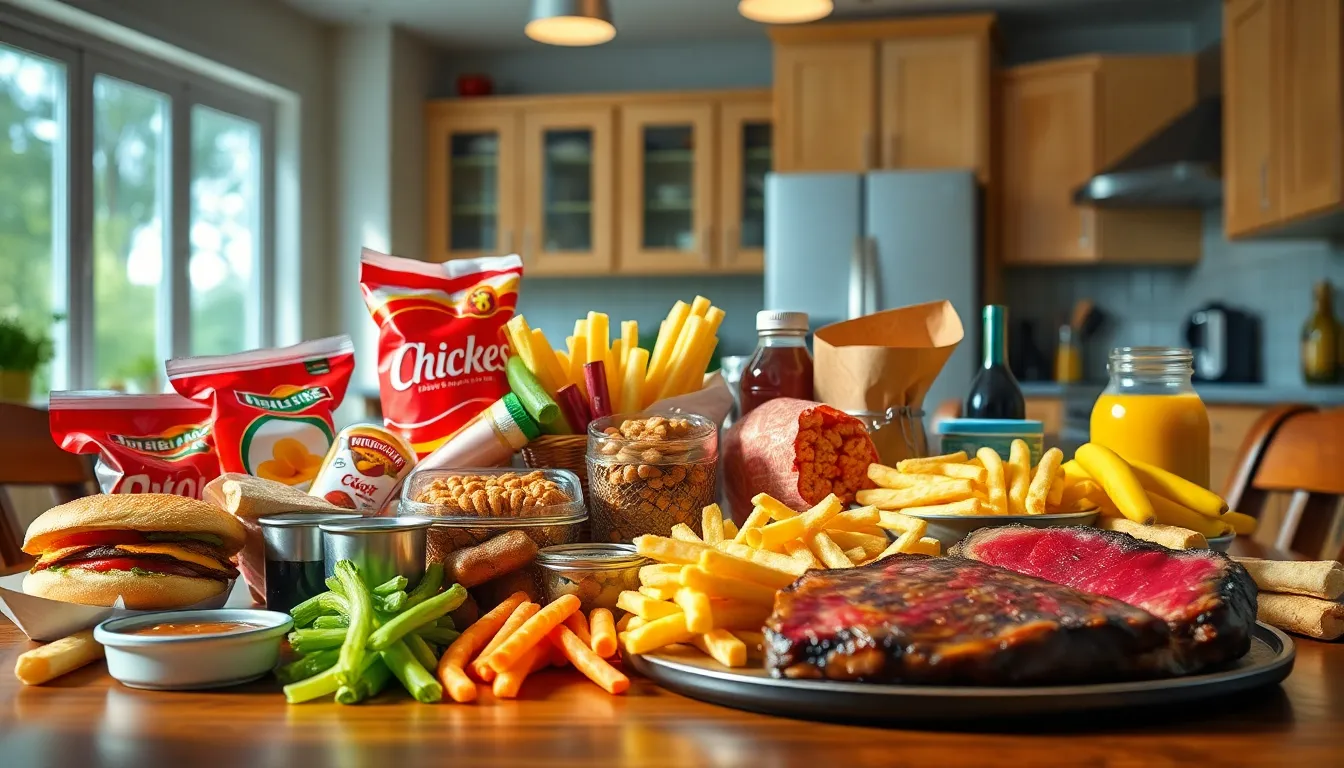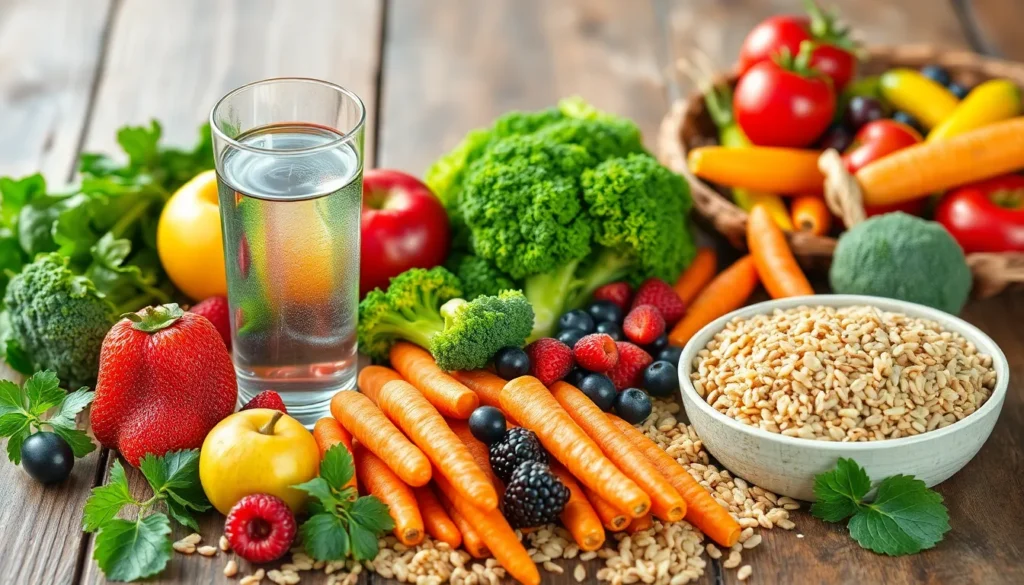Table of Contents
ToggleConstipation is a common issue that affects many people at some point in their lives. While various factors contribute to this uncomfortable condition, diet plays a significant role. Certain foods can slow down digestion and lead to that sluggish feeling, making it essential to understand what to avoid.
High-fat and low-fiber foods often top the list of culprits. Processed snacks, dairy products, and red meat can disrupt regular bowel movements. By identifying these foods, individuals can take proactive steps to improve their digestive health. In this article, we’ll explore the specific foods that may contribute to constipation, helping readers make informed dietary choices for a smoother experience.
Understanding Constipation
Constipation involves infrequent or difficult bowel movements, often resulting in discomfort. Various factors contribute to this condition, with diet playing a pivotal role. Fiber, essential for promoting regularity, often comes from fruits, vegetables, and whole grains. When dietary fiber intake is low, it leads to harder stools and more straining during bowel movements.
High-fat foods and low-fiber options exacerbate constipation. Processed snacks, such as chips and cookies, provide minimal fiber but high fat, leading to sluggish digestion. Dairy products, particularly full-fat items, can also contribute, as some individuals find lactose difficult to digest. Red meat, dense in protein and fat, lacks essential fiber, further complicating bowel movement regularity.
In contrast, hydration significantly aids digestion. Insufficient fluid intake can lead to dehydration, resulting in harder stool that is more difficult to pass. Maintaining adequate water consumption can support digestive health.
Overall, understanding the impact of specific foods on bowel function helps individuals make informed dietary choices, potentially reducing the occurrence of constipation.
Common Causes of Constipation


Diet and lifestyle factors significantly contribute to constipation. Understanding these causes aids in identifying and managing this condition effectively.
Dietary Factors
Dietary choices play a crucial role in bowel function. High-fat foods, such as fast foods and fried items, slow digestion. Low-fiber foods, including processed snacks and refined grains, can also lead to constipation, as fiber is essential for softening stools. Dairy products may cause difficulties for some individuals, particularly when consumed in excess. Red meat, rich in fat and low in fiber, can further exacerbate the issue. Additionally, inadequate hydration affects stool consistency; insufficient fluid intake can lead to harder stools, making elimination more challenging.
Lifestyle Factors
Lifestyle choices significantly impact bowel health. Sedentary behavior, including prolonged sitting or lack of exercise, can reduce the frequency of bowel movements. Stress can alter digestive processes and may lead to constipation. Regular routines, including consistent meal timing and bathroom habits, support healthy digestion. Neglecting to respond to natural urges for bowel movements can disrupt regularity, leading to constipation.
Foods That Can Cause Constipation
Certain foods can significantly contribute to constipation by slowing digestion and creating harder stools. It’s essential to recognize these foods to maintain regular bowel movements.
Processed Foods
Processed foods, including snacks like chips and frozen meals, often contain high levels of unhealthy fats and low fiber. Examples include ready-to-eat meals, white bread, and sugary desserts. These items can disrupt the digestive process and lead to constipation by providing insufficient bulk to facilitate bowel movements.
Dairy Products
Dairy products, such as cheese, milk, and ice cream, can contribute to constipation, especially in individuals who are lactose intolerant. The presence of high fat and low fiber in many dairy items slows digestion. Consuming large quantities may result in discomfort and irregular bowel movements.
Red Meat
Red meat, including beef, lamb, and pork, is high in protein and fat but low in fiber. The dense composition of red meat can slow the digestive process, making bowel movements more difficult. Red meat consumption can contribute to harder stools, especially when dietary fiber is lacking.
Certain Grains
Certain grains, particularly refined grains found in white bread, pasta, and pastries, lack the fiber necessary for healthy digestion. These grains can lead to constipation as they do not provide adequate bulk to the stool. Whole grains, like whole wheat bread and brown rice, are better options for maintaining regularity.
Bananas
Bananas may also contribute to constipation when consumed in excess, particularly unripe bananas. While ripe bananas contain soluble fiber that aids digestion, unripe bananas are low in fiber and can have a binding effect on the digestive system. Eating these less ripe bananas in large amounts can exacerbate constipation symptoms.
Tips for Managing Constipation
Managing constipation effectively involves making key dietary and lifestyle adjustments. Staying properly hydrated and increasing fiber intake plays vital roles in promoting regular bowel movements.
Hydration
Hydration significantly influences digestive health. Drinking adequate fluids, particularly water, can soften stools and facilitate their passage through the intestines. Aim for at least 64 ounces (approximately 1.9 liters) of water daily, adjusting this amount based on activity level and climate. Additionally, incorporating hydrating foods, like cucumbers and watermelon, can offer extra fluid sources.
Fiber Intake
Fiber intake is essential for preventing and managing constipation. Adults should consume 25 to 38 grams of fiber each day, depending on age and gender. Incorporate high-fiber foods, such as:
- Fruits: Apples, berries, and pears
- Vegetables: Broccoli, carrots, and Brussels sprouts
- Whole grains: Oats, brown rice, and whole wheat bread
- Legumes: Lentils, beans, and chickpeas
Gradually increasing fiber intake is crucial to avoid digestive discomfort, allowing the gut to adjust. Pairing fiber-rich foods with adequate hydration enhances their efficacy in promoting smooth bowel movements.







